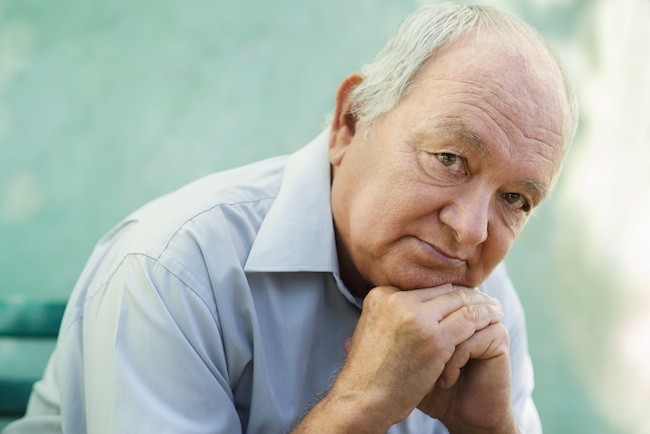
Recently Diagnosed or Relapsed? Stop Looking For a Miracle Cure, and Use Evidence-Based Therapies To Enhance Your Treatment and Prolong Your Remission
Multiple Myeloma an incurable disease, but I have spent the last 25 years in remission using a blend of conventional oncology and evidence-based nutrition, supplementation, and lifestyle therapies from peer-reviewed studies that your oncologist probably hasn't told you about.
Click the orange button to the right to learn more about what you can start doing today.
- You are here:
- Home »
- Blog »
- Multiple Myeloma »
- End Stage Myeloma- More Chemo or Palliative?
End Stage Myeloma- More Chemo or Palliative?

My dad’s MM advanced rapidly in the past month or so. He was diagnosed in late July 2020. He is almost 75 and the doctor told us yesterday his recommendation of not treating him with chemo any further and make him comfortable.
We just found out my dad has high risk cytogenetics. If my mother and I decide to pursue more chemo for my dad, the doctor said there was a 10% chance it would work with a different regimen he had in mind.
My dad is in bad shape. Is it too late for him in your opinion? I’m beating myself up that we didn’t get my Dad involved with non-conventional treatments in conjunction with the chemo.
Please reach out to me if at all possible. We are so grateful for any insight you could provide. Thanks, Doug
______________________________________________
Hi Doug-
First and foremost, I am sorry to read of your dad’s MM challenges. If your dad is like the majority of newly diagnosed MM patients, his MM is advanced. If your dad has “comorbidities” or complications such as bone damage and/or kidney damage, he will face a steep uphill battle.
Conventional oncology rarely, if ever, discusses the fact that a percentage of MM patients do not respond to chemotherapy. This means that stabilizing your dad’s health will be extremely difficult if not impossible.
Complementary therapies are effective but longer term. By this I mean that conventional therapy must stabilize the patient and then non-conventional therapies can heal and or deepen the patient’s remission.
Based on the studies that I’ve read, yes, there is small chance that your dad will respond to a different chemotherapy regimen.
“Responding” in this case means that your dad’s health may stabilize. But stabilizing or halting the MM is only one step in your dad’s healing process. He must heal any/all organ damage (symptoms) he has sustained up to this point.
I can give you statistics. I can tell you what your oncologist has been telling you. No one will ever give you absolutes. Any decision going forward is a decision that only your dad and his caregivers (you and your mom) can make. Many studies cite palliative and hospice care lengthening the patient’s life while managing symptoms.
- Click now to learn more about end-stage multiple myeloma
- To Learn More about Palliative Cancer Care- click now
- To Learn More About Chemotherapy-induced nausea and vomiting- click now
I hope this helps.
Sincerely,
David Emerson
- MM Survivor
- MM Cancer Coach
- Director PeopleBeatingCancer
Hi David-It truly means the world to me and my family that you were able to respond back with your thoughts and knowledge.
My dad’s kidneys are impacted the most. He is receiving dialysis every other day.
His lungs have fluid that he can’t seem to get totally rid of because of his lack of strength to produce any phelm out his mouth.
He can’t swallow and has a feeding tube. He has an oxygen mask now and he is not really able to talk.
He has AFIB as of late usually brought on at the end of his dialysis sessions.
The hospital was ready to move him out ICU. He is receiving blood and platelet transfusions.
He also is on morphine for pain as needed, an AFIB med and med to help him relax.
I pray he is able to talk more to hear his wishes. We tried to ask him through Skype yesterday if he wanted to stop chemo and come home. It was hard, but he kept saying “Why?”
David Emerson
- MM Survivor
- MM Cancer Coach
- Director PeopleBeatingCancer
Recommended Reading:
Palliative care: Earlier is better
“Palliative care focuses on the prevention and treatment of pain and other debilitating effects of serious illness, with a goal of improving quality of life for patients and their families. Unlike hospice care, which requires a prognosis of less than 6 months of life to qualify for Medicare reimbursement,2 eligibility for palliative care is not dependent on prognosis.
Indeed, palliative care can occur at the same time as curative or life-prolonging treatment. Palliative care programs include psychosocial and spiritual care for patient and family; management of symptoms such as pain, fatigue, shortness of breath, depression, constipation, and nausea; support for complex decisions, such as discussions of goals, do not resuscitate (DNR) orders, and requests for treatment; and coordination of care across various health care settings.3
CHALLENGES TO IMPLEMENTATION: Palliative care must be explained—and available
Physicians must be able to explain to their patients the difference between palliative care and hospice—most notably, that patients can continue to receive anticancer treatment while receiving palliative care. The recommendation to seek palliative care should not be considered “giving up” on the patient.
In order to refer patients to palliative care early in the course of cancer care, physicians must have access to a palliative care team, which may not be available in all cases. In 2006, only 53% of hospitals with more than 50 beds reported having a palliative care program.5 If there is no such program available, physicians can refer to the ICSI guideline on palliative care for more information on how to implement elements of palliative care for their patients with advanced cancer.7


